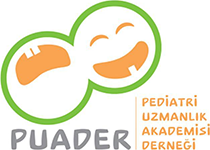Neonatal esophageal perforation caused by perinatal trauma
Laura Beth Martin1 , Francisco José García Díaz2
, Francisco José García Díaz2 , Gema Matilde Calderón López3,
Elisa García García3, Ana Isabel Garrido Ocaña3
, Gema Matilde Calderón López3,
Elisa García García3, Ana Isabel Garrido Ocaña3
1Torrecárdenas University Hospital, Pediatrics, Almeria, Spain
2Puerta De Hierro Hospital, Pediatrics, Majadahonda, Madrid, Spain
3Virgen Del Rocío University Hospital, Neonatology, Seville, Spain
Keywords: Esophageal perforation, perinatal trauma, pneumomediastinum, mediastinitis
Abstract
Background: Esophageal perforation in neonates is rare, challenging to diagnose, and associated with a high mortality rate. The condition most often arises from medical interventions, such as the insertion of enteric tubes or endotracheal intubation. Premature and low-birth-weight infants are particularly susceptible, while occurrences in full-term infants are extremely uncommon. In recent years, conservative management has become the preferred approach, with surgical intervention reserved for cases involving complications or lack of response to initial treatment.
Case report: We report a case of a term newborn who presented with respiratory distress and sialorrhea, diagnosed with an esophageal rupture, who made a full recovery with non-surgical management.
Conclusion: Neonatal esophageal perforation is a rare yet potentially life-threatening condition; however, with early diagnosis, most cases can have a favorable prognosis when managed conservatively.
Cite this article as: Martin LB, García Díaz FJ, Calderón López GM, García EG, Garrido Ocaña AI. Neonatal esophageal perforation caused by perinatal trauma. Pediatr Acad Case Rep. 2025;4(3):52-4.
The parents’ of this patient consent was obtained for this study.
The authors declared no conflicts of interest with respect to authorship and/or publication of the article.
The authors received no financial support for the research and/or publication of this article.

